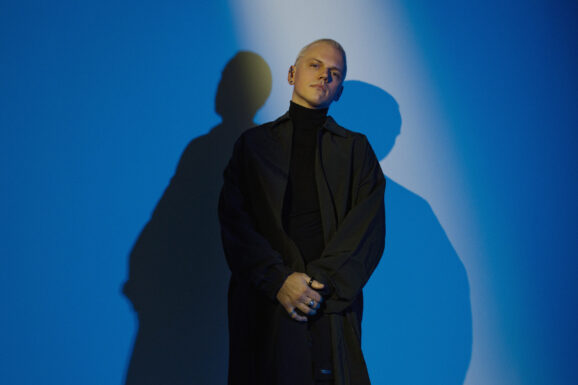Cancel the Sun is the third and most aggressively sounding recording from a band led by co-leaders with rich pedigrees. Kami Thompson is the daughter of folk-rock royalists Richard and Linda Thompson and sister of Teddy. James Walbourne has had stints with Son Volt, The Pogues and The Pretenders. So, it can’t exactly be called Americana, as an Eliza Carthy album title termed it, perhaps Anglicana because as Thompson says, “it’s a distillation of influences in an English still.
There’s an urgency from the outset as the two sing “Call Me When It All Goes Wrong, “ backed by the rhythm section of Carwyn Ellis on bass and Rob Walbourne on drums and percussion. Kami plays both acoustic and electric guitar while Welbourne not only handles guitars but an array of keyboards too. The rocking opener is followed by “Mossy Wall,” a title that correctly suggests British Isles folk-rock, where the blending of voices is superb. As Walbourne says, “We sing together, and we can’t wait till the other one joins in.” Their interplay and harmonic sense have become practically telepathic by now on their third album.
The album was recorded in London this past Spring with Stephen Street (The Smiths, The Cranberries, Blur) in the producer’s chair. The band consciously wanted move more toward a loud, rocking sound while retaining their folk-rock foundation. Some of it sounds like ‘90s indie guitar pop as in the opener and “Ball and Chain.” The latter and “Waiting On Something” will certainly remind some of the heyday of Kami’s parents. There’s ‘60s English baroque in “Dictator,” lovely country balladry in “Something Is Slipping My Mind” and along with “Mossy Wall” folk influence in “Leave Here Alone.” Both co-leaders feel that this album is the best expression of their various influences and that they went about it more naturally. They claim the major influence was from fellow northern Londoners, The Kinks, not in sound but in an approach that enables them to make the music they want without sacrificing their individuality. That English eccentricity clearly shines through and if one only had two words to describe the major source of the sound, they would utter ‘British folk.’
The album marked a few firsts. Walbourne used a different approach to writing, described as plugging in an electric guitar and mic and singing. Also, despite being married, this is the first time both wrote all songs together. Like her parents, Kami favors the dark but Walbourne gravitates toward stories and character sketches. Walbourne tries to counter Thompson’s dark lyrics with upbeat music when he can. The album is a progression too. After all, it can be incredibly intimidating, in Thompson’s case, to match her parents’ talent; and for Walbourne to find his own style without directly imitating Jay Farrar, Shane MacGowan or Chrissie Hynde. So, the songwriting comes from a new platform and Walbourne has found plenty of opportunities to plug in an let it rip. They bring it all together on the stunning closing title track which starts quietly with Thompson in folk mode before ending with swirling electric guitar and some abrupt feedback.
This album has plenty of shifting tempos and is well-paced. The harmonies make it sound if Thompson and Walbourne were just meant to sing together. Don’t be steered away from what may be described as “folk rock.” This has a thumping pulse and plenty of stunning moments.









